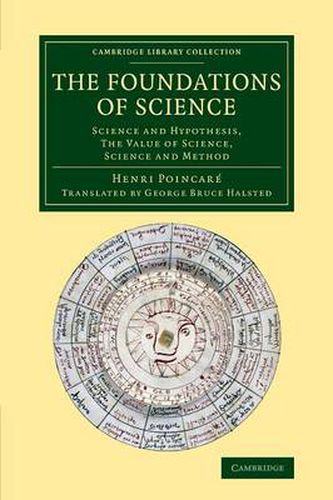Readings Newsletter
Become a Readings Member to make your shopping experience even easier.
Sign in or sign up for free!
You’re not far away from qualifying for FREE standard shipping within Australia
You’ve qualified for FREE standard shipping within Australia
The cart is loading…






A member of the Academie francaise, Henri Poincare (1854-1912) was one of the greatest mathematicians and theoretical physicists of the late nineteenth and early twentieth centuries. His discovery of chaotic motion laid the foundations of modern chaos theory, and he was acknowledged by Einstein as a key contributor in the field of special relativity. He earned his enduring reputation as a philosopher of mathematics and science with this elegantly written work, which was first published in French as three separate essays: Science and Hypothesis (1902), The Value of Science (1905), and Science and Method (1908). Poincare asserts that much scientific work is a matter of convention, and that intuition and prediction play key roles. George Halsted’s authorised 1913 English translation retains Poincare’s lucid prose style, presenting complex ideas for both professional scientists and those readers interested in the history of mathematics and the philosophy of science.
$9.00 standard shipping within Australia
FREE standard shipping within Australia for orders over $100.00
Express & International shipping calculated at checkout
A member of the Academie francaise, Henri Poincare (1854-1912) was one of the greatest mathematicians and theoretical physicists of the late nineteenth and early twentieth centuries. His discovery of chaotic motion laid the foundations of modern chaos theory, and he was acknowledged by Einstein as a key contributor in the field of special relativity. He earned his enduring reputation as a philosopher of mathematics and science with this elegantly written work, which was first published in French as three separate essays: Science and Hypothesis (1902), The Value of Science (1905), and Science and Method (1908). Poincare asserts that much scientific work is a matter of convention, and that intuition and prediction play key roles. George Halsted’s authorised 1913 English translation retains Poincare’s lucid prose style, presenting complex ideas for both professional scientists and those readers interested in the history of mathematics and the philosophy of science.